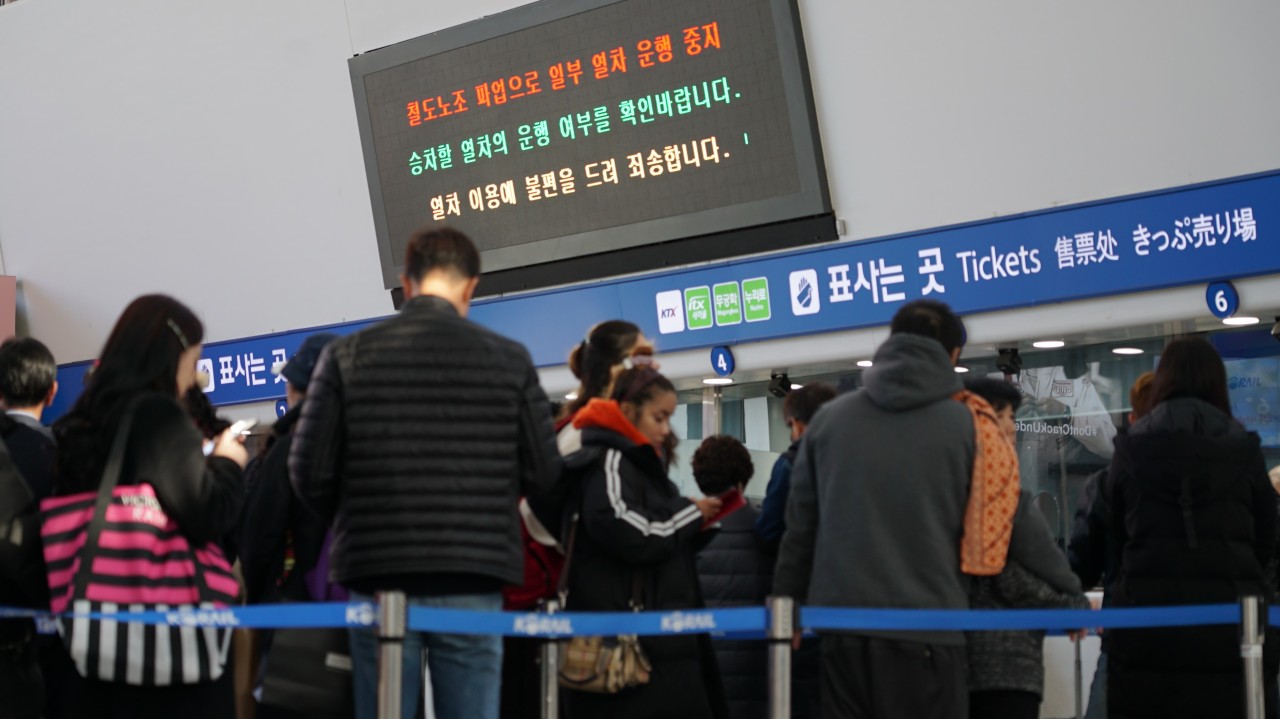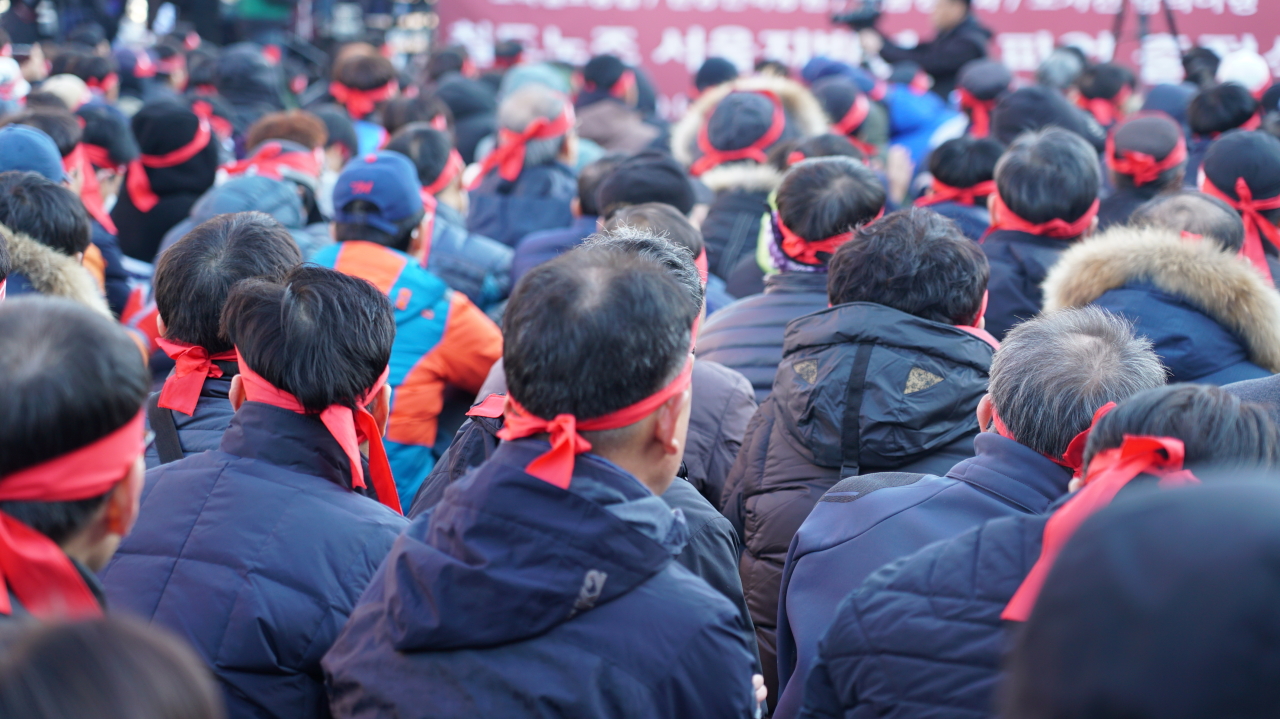Railway union launches indefinite walkout nationwide
By Choi Ji-wonPublished : Nov. 20, 2019 - 17:32
The unionized workers of state-run rail operator Korail and its affiliated companies began an indefinite strike at 9 a.m. Wednesday.
A crowd bustled in front of the ticket boxes at Seoul Station on Wednesday afternoon, several hours after the Korean Railway Workers’ Union started their general walkout. Three to four Korail staff were ushering customers to the self-service kiosks while many stood confused, waiting for help.
A crowd bustled in front of the ticket boxes at Seoul Station on Wednesday afternoon, several hours after the Korean Railway Workers’ Union started their general walkout. Three to four Korail staff were ushering customers to the self-service kiosks while many stood confused, waiting for help.

Seo Jung-min, 32, who travels to Seoul from Busan at least twice a week on business said he has never experienced such trouble in getting train tickets before.
“I was waiting for more than half an hour and I couldn’t get one seat to Busan. Luckily, someone in the line was trying to yield a spot because the line (to cancel the ticket) was taking too long. And I took that,” Seo said. “I’ve been traveling to and from Seoul for the past three years and, even though there have been strikes in the past, it has never been this bad. There obviously are much fewer tickets available (than usual).”
This is the first time the railway union has held an indefinite general walkout since the 74-day strike from September to December in 2016.
The union, comprising around 19,000 workers, staged a 72-hour preliminary strike last month, demanding an increase in basic salaries and an expansion of the workforce. With the breakdown of the latest negotiations the previous day, the union launched the general strike as planned in the morning.


The Ministry of Land, Infrastructure and Transport plans to deploy substitute workers to alleviate passengers’ inconvenience.
According to the ministry, the cargo service will be affected the most, with operations dropping by almost 70 percent. Sixty-nine percent of KTX trains will run, compared to only 60 percent of ordinary passenger trains. Subway services run by Korail in the capital area -- Line Nos. 1, 3 and 4, the Gyeongui-Jungang Line and the Bundang Line -- will operate at 92.5 percent capacity in the morning rush hours and 84 percent in the evening, with 82 percent operating in the noncommuting hours.
The high-speed train SRT, whose workers are not going on strike, started selling standing-only tickets on Wednesday.
The unionists of Korail’s affiliated companies -- Korail Tourism Development and Korail Networks -- have also joined the strike, affecting the operations of ticket booths and customer service at stations.
In response to the strike, the ministry stated it is impossible to expand the workforce unless the union suggests acceptable reasons and follow-up measures.
“It only raises the burden on the public if we increase the number of railway workers with no reasonable grounds,” Second Vice Minister for Transport Kim Kyung-wook said during his visit to the ministry’s emergency headquarters at Sejong Government Complex.
“The union is demanding additional employment of 4,600 while the government has suggested 1,865, and even that number is baseless,” Kim told the reporters.
The company and the unionized workers failed to reach a deal after more than 30 negotiation sessions since May. The union has been requesting a 4 percent increase in the basic wage, additional workers, permanent employment of outsourced laborers and integrated operations of high-speed trains.
By Choi Ji-won (jwc@heraldcorp.com)



![[Exclusive] Korean military set to ban iPhones over 'security' concerns](http://res.heraldm.com/phpwas/restmb_idxmake.php?idx=644&simg=/content/image/2024/04/23/20240423050599_0.jpg&u=20240423183955)

![[Graphic News] 77% of young Koreans still financially dependent](http://res.heraldm.com/phpwas/restmb_idxmake.php?idx=644&simg=/content/image/2024/04/22/20240422050762_0.gif&u=)



![[Pressure points] Leggings in public: Fashion statement or social faux pas?](http://res.heraldm.com/phpwas/restmb_idxmake.php?idx=644&simg=/content/image/2024/04/23/20240423050669_0.jpg&u=)










